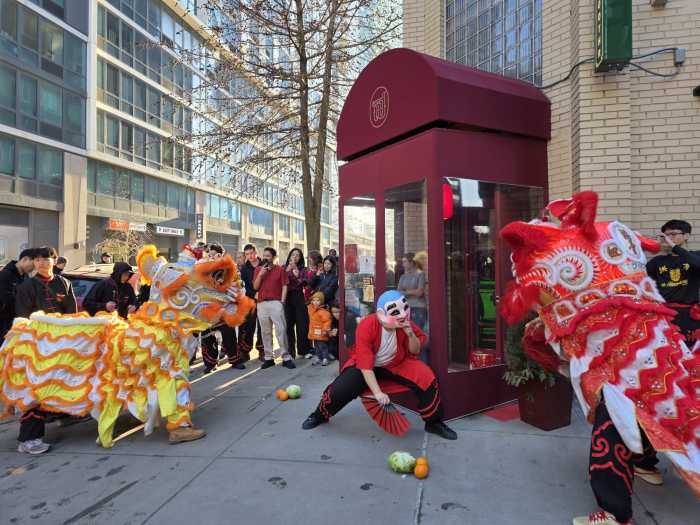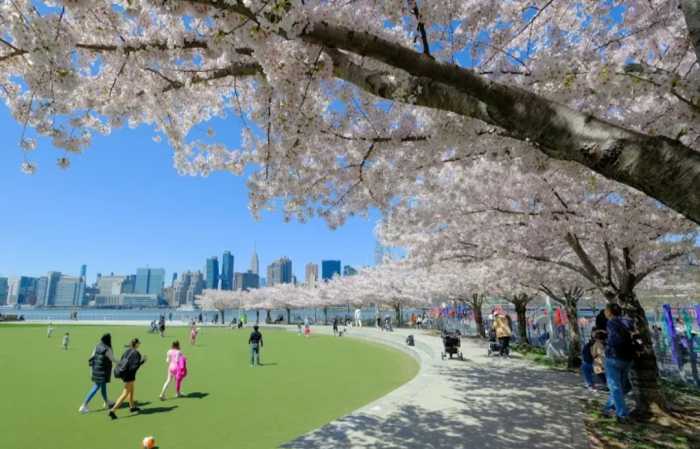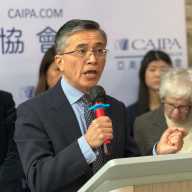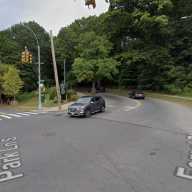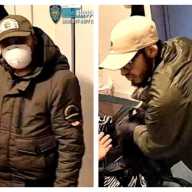Federal housing official Lynne Patton told Queensbridge Houses residents at a Long Island City town hall meeting on Thursday night that conditions at the public housing complex and other NYCHA facilities would improve significantly — and that no one will be allowed to stand in the way of progress.
Patton, an appointee of President Trump, acknowledged at the March 7 meeting that the president’s politics likely clash with most residents of the Queensbridge Houses, the nation’s largest public housing development. Nonetheless, she stressed that the federal Department of Housing and Urban Development (HUD) and a federal monitor appointed to oversee NYCHA are committed to bringing about substantial improvements to the city’s public housing over the next eight months.
Queensbridge Houses residents took the opportunity to vent over experiences of drinking water that making their family sick, inveterate plumbing issues, heating issues as well as walls and window frames rotting away, Patton said the federal monitor, the appointment of a new NYCHA chair and a fresh approach to maintenance will lift them from the “squalor” in which they currently live.
“I could go on and on, but I want you to know that change is coming. I would not be here and I would not put myself in a position to tease you guys if I didn’t fully believe that we are on the precipice of actually turning NYCHA around,” Patton said. “Never in the history of NYCHA has there been a federal monitor with this level of authority … Anything that stands in our way of turning NYCHA around, we’re going to destroy.”
As monitor, former assistant U.S. Attorney Bart Schwartz will have the power to remove and reassign NYCHA employees; restructure the leadership and reporting line; as well as “wipe clean” or renegotiate union contracts, Patton said.
She claimed the way NYCHA manages labor needs a new approach since it had spent over $341 million on overtime between 2014 and 2016, but Patton did not have anything negative to say about the employees at the housing complex itself.
“Even the hardest working people can’t keep up with the demands of this place if you’re short staffed,” Patton said of her day with the NYCHA employees on March 7. “A lot of the people who work at NYCHA live in NYCHA, they want to serve you.”
One resident said with the plumbing having been installed in 1930, leaks are causing the walls in her bathroom to crumble and the pipes in her unit were recently replaced. An infrastructure change from the ground up is necessary, according to multiple speakers.
Maintenance workers told Patton some of the pipes are so old, they break apart in their hands.
Another life-long resident has not had hot water since January and multiple work orders have been closed out before the problem was addressed.
“I come home from work, all I want to do is take nice hot shower, unwind and relax, but I can’t because I don’t have hot water,” she said.
One woman’s ceiling fell in her bathroom and maintenance did not arrive to address the situation at 2 a.m.; she said she felt intimidated by the late night visit.
“Why would you want to let someone in at two in the morning?” she said.
Another woman said the water coming out of her faucet is the color of rust and has not only made her family sick, but is now undergoing medical testing.
“Tomorrow, I have to go to my doctor and get blood work, because I don’t feel right at all,” the woman said.
Patton backed up this claim, saying water tank inspections revealed dead birds and other filth. NYCHA will begin flushing the pipes periodically under the monitor.
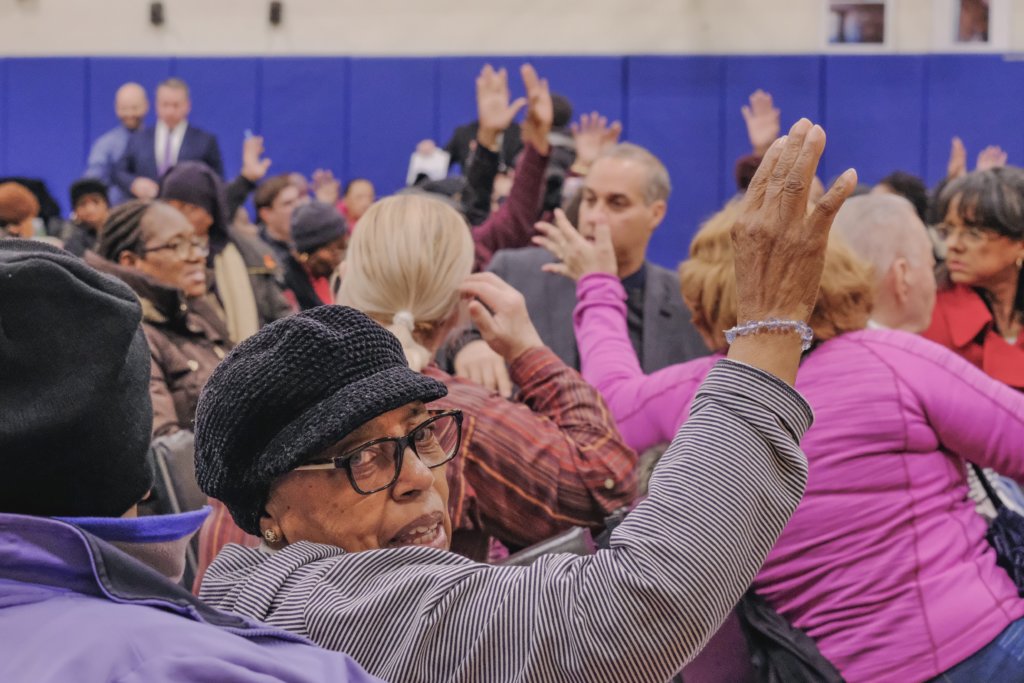
“One thing I want to make clear is society’s stereotype of people who live in public housing,” Queensbridge Tenants Association President April Simpson said. “The majority of the people who live in public housing are either retired or current city workers … We pay taxes and not just on cigarettes and liquor… We pay our rent. That’s one thing that NYCHA will do if you do not pay you rent, they will put you out.”
Patton said the Schwartz will ensure the maintenance office will stay open from 6 a.m. to 7 p.m., instead operating under the current inconsistent hours and sometimes closing at 1 p.m. The office may start having weekend hours as well.
Within the next few weeks, Patton added, a new NYCHA chair will finally be appointed to replace Shola Olatoye, who resigned in April 2018 amid controversy over living conditions across the entire NYCHA system.
Over the next 45 days, the monitor will create a department to oversee that lead, mold and Legionnaire’s disease compliances are met. Whether or not work orders are actually completed before they are closed out will also be under scrutiny.
“As much as this isn’t about politics,” Patton said. “Whether you voted for this man who sits in the White House or when was the last time – ask yourself – that a sitting president asked for a conference call on NYCHA. He asked for one last week and I told him the problems that are happening here.”
Trump is open to proving more money and human resources to NYCHA, according to Patton.
Patton, who is living at Queensbridge during her stay in the city, said the monitor would be appointed by May.



